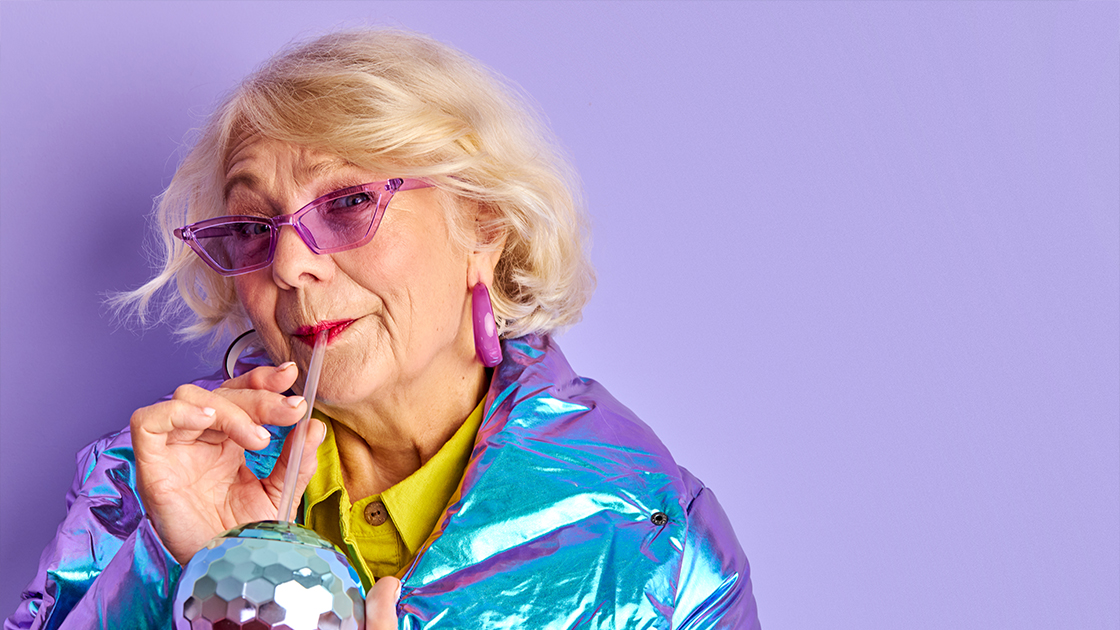by Julia Hubbel
Most of us want our later years to be easier, right? Less worry, less stress, more happiness and greater joy. After a lifetime of work, raising kids and all of life’s many challenges, it’s time to focus on us. Find new and fun ways to be well, take care of our bodies and enjoy friends and family.
But what does that mean, really, to be both well and whole, as we enter what could be our best years?
The Center for Successful Aging –a center for seniors that isn’t all about Silver Sneakers- at the University of California at Fullerton has developed a model which addresses what Whole- Person Wellness means.
The website explains that while “whole person wellness” has nothing to do with age. It’s about how we address all the important facets of our lives. Taking better care of our aging bodies, for example, which allows us to be active and have more fun.
In other words, as we move into our third act, those can be our best days ever. It begins with being aware of the different spheres which make us up as whole beings. If you’ve spent much of your life taking care of others, this might take a little change on your part to finally put the focus on you.
Here’s one way to envision this:
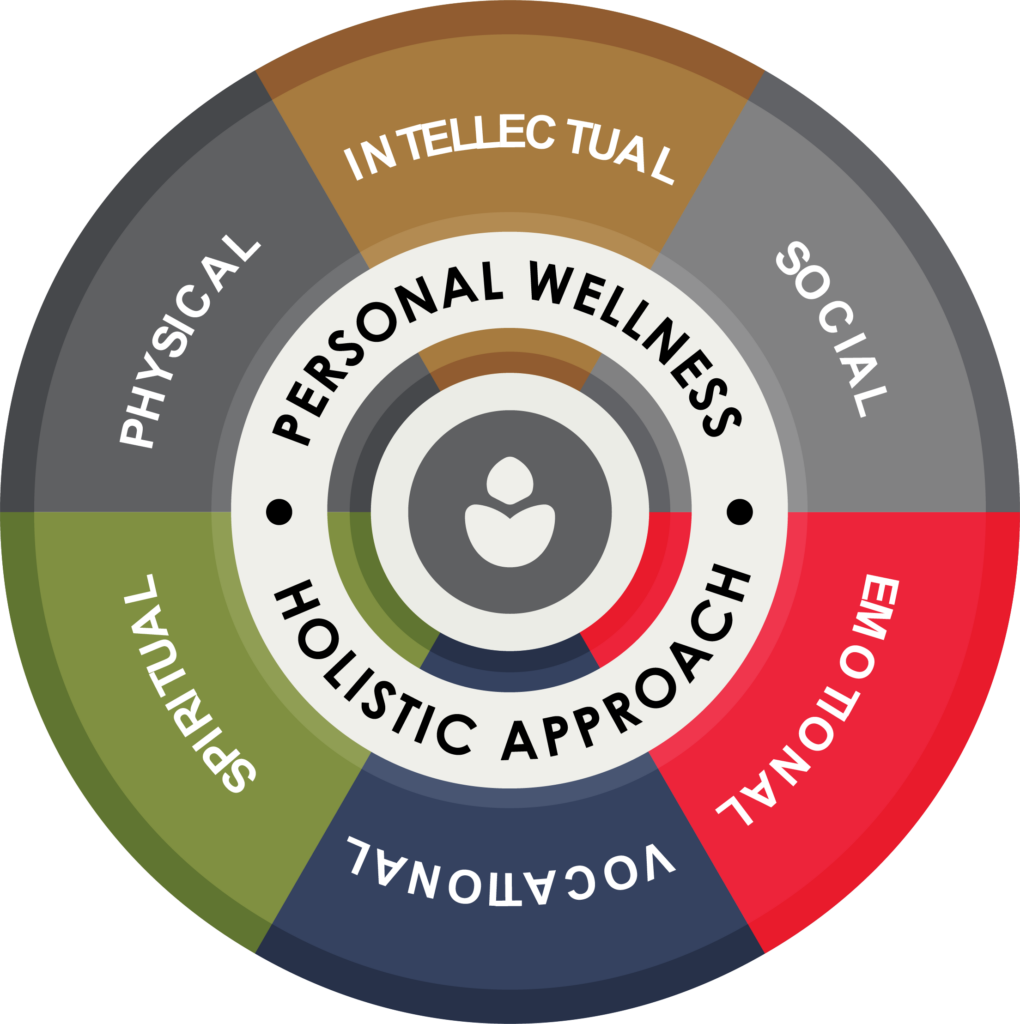
One way to think about this is how well your retirement plans are going. Did you have plans? If so, how is that working for you?
Steve Lopez is a celebrated columnist for The Los Angeles Times and author of Independence Day: What I Learned About Retirement from Some Who’ve Done It and Some Who Never Will. His rollicking yet serious take on retirement is critical reading for those contemplating putting their hard hats away forever, as having a reason to lace up our sneakers every day is a critical part of our being. We still need a purpose and to feel as though we’re valued.
That said, at this age, a better life is about finding purpose at a pace that is much kinder to our bodies and brains. That’s where the wellness comes into play.
From the Center for Successful Aging website:
Whole-person wellness promotes … be(ing) as healthy as possible in the areas of emotional, intellectual, physical, social, spiritual and vocational health.
Above all, successful aging means living up to our highest potential where we are right now, beginning with what we believe and how we feel about our aging selves.
Dr. Becca Levy, in her groundbreaking book Breaking the Age Code: How Your Beliefs About Aging Determine How Long and Well You Live presents proof-positive that a favorable attitude about aging can add years to our lives. Not just any years, either, but happy, healthy and fully-engaged years, full of friends, activities and purpose.
According to Levy, older people who had positive feelings about aging “were more likely to recover from severe disability, they remembered better, they walked faster, and they even lived longer.”
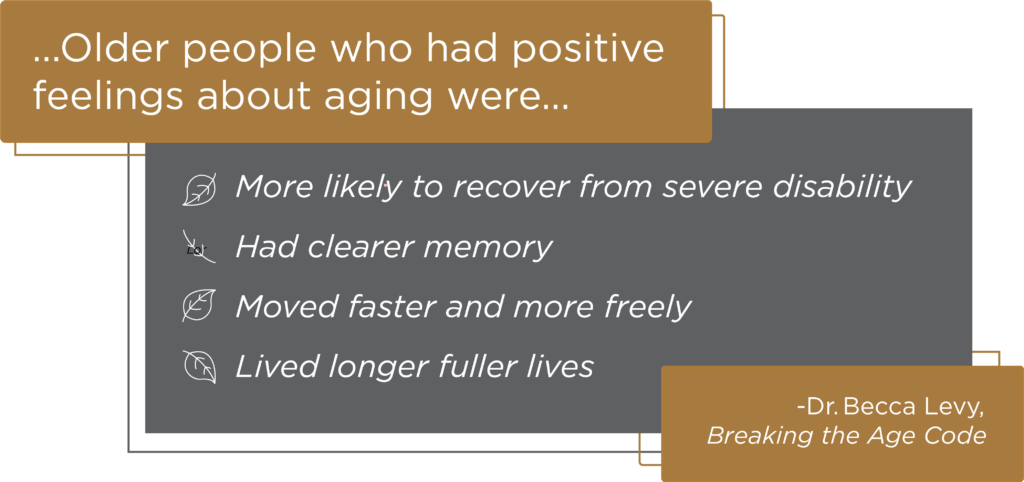
Even if you entered your later years with limitations or disabilities, the power of a positive attitude can help you deal with the challenges as well as potentially even overcome them. Above all, attitude affects every aspect of Whole Person Wellness, helping us meet our full potential in each important facet of our lives from cognitive health to physical activity to our ability to make and keep friends as we age.
Let’s get real so that we can get started
Attitude is also informed by honesty. Here’s what I mean. Let’s say that you’re going to start walking every day. Great idea. Perhaps you head out, full of enthusiasm. Halfway around the block you run out of steam.
That can feel defeating. However, this is where attitude plays such a powerful role. Rather than give up with a battered ego (What’s wrong with me? I used to run eight miles a day!), instead we can start where we are right now.
It’s the “right now” part that’s most important. Have a sense of humor that things aren’t what they used to be. Then we start where we are and build from there. Attitude, the belief that better days lie head, is what drives that loving acceptance and allows us to start the journey back to our best selves.
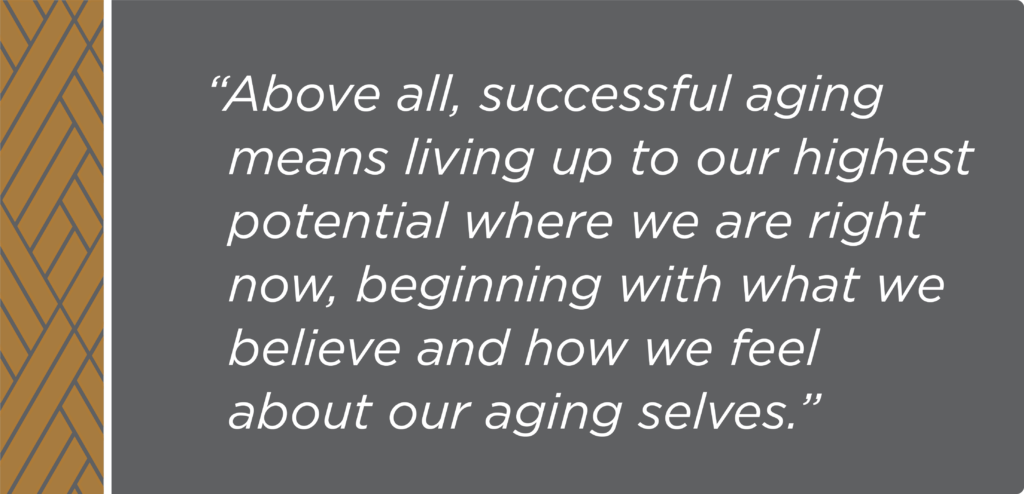
The danger is when we have decided that we’re too old to start over. That’s internalized ageism, when we turn the unkind
Ageism and healthy aging
Ageism is a form of hatred based on something none of us can do a single thing about. Ageism costs us years of healthy living, our joy and humor at a time when we deserve to celebrate life.
We start forming ideas and opinions about age from very early on. If our parents age confidently and with good humor about the inevitable insults that we all bear as our bodies change, we learn to deal with them when it’s our turn with similar hilarity and acceptance.
That’s not so easy in a culture where youth is celebrated above all attributes.
Aging isn’t a failure. If anything, reaching great old age, especially if we are active and engaged, is a profound statement of success. One of the first and most important steps towards healthy aging is to check in on our attitudes about our evolving selves.
Whole-person wellness invites us to continue to engage our brains with intellectual activities, preferably among others with whom we can have stimulating and lively discussions. Gathering around healthy meals that you’ve made with friends creates powerful bonds, great memories. Those relationships inspire people to spend other kinds of time together, such as walks or even trying out a new sport.
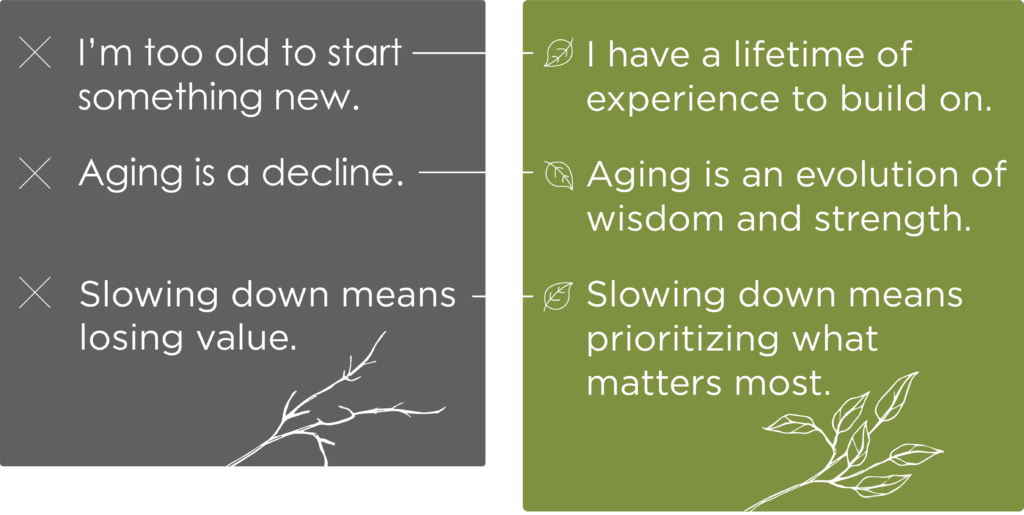
Levy’s research found that the structural bias against aged people in our culture becomes part of our attitudes, and creeps into the language we use with ourselves, as with my parents. Being “too old” became the knee-jerk excuse to avoid anything new, when something new might well have been the very thing to energize them.
Levy writes:
“…as you finally enter your own old age, whenever you can’t recall something, you blame it on aging. When you do this, you’re actively manifesting the stereotype you grew up hearing applied to older people, but now you’re directing it at yourself. This, in turn, can lead to stress, which can reduce memory performance.”
Chances are you lost your keys a hundred times long before you turned 78, but now it’s because we’re older. The truth is that we forget things all the time, but it isn’t until we’re capped with a little grey that we start automatically blaming it on age.
The importance of healthy aging role models
My parents graduated from college right into the Depression, as many Boomers’ parents did. They were beautiful, athletic and active. Like so many, they believed that their good looks, youthful energy and excellent health would last forever, until they didn’t.
Once past sixty, after they sold our farm and bought an RV, they spent vastly more time eating and sitting than they did moving and working. Neither much appreciated how Mother Nature decided to age them. Their resentment about losing their youth and looks translated into a lack of enthusiasm for all the opportunities which waited for them on the other side of retirement.
My father’s strength waned, and my mother’s body expanded. The illnesses piled on and so did the pills.
My folks regularly argued that they were too old to learn a computer, too old to learn a new language, too old for life, I guess.
They talked themselves out of living their last years as their best years.
Let’s age better
By contrast, I had been lifting weights for decades. When I reached sixty, I decided to climb Kilimanjaro, a jewel of an achievement for anyone. Instead of slowing down, I sped up, increasing my workouts until I had honed a powerful body.
Looking out over Tanzania from the top of that great mountain, I knew that if I could do that, there wasn’t much I couldn’t achieve. That launched me into a career doing adventure travel, doing extreme sports all over the world.
While that may sound epic, let me temper that with reality: my favorite stories from all those adventures horse riding, paragliding, skydiving and the rest are the spectacular fails. I risked bodily harm, and in doing so was gifted with some of the funniest tales of any life.
Especially a life that took off after sixty.
No matter how our parents chose to age, we can choose a different path. It begins with our attitudes about the inevitable. If we’re very lucky, we will age. If we’re really smart, we will age with gratitude, joy and enthusiasm.
With access to the Internet, a wealth of health information and nutritional guidance, we can rewrite the narrative the society lays at our door: aging is not a failure.
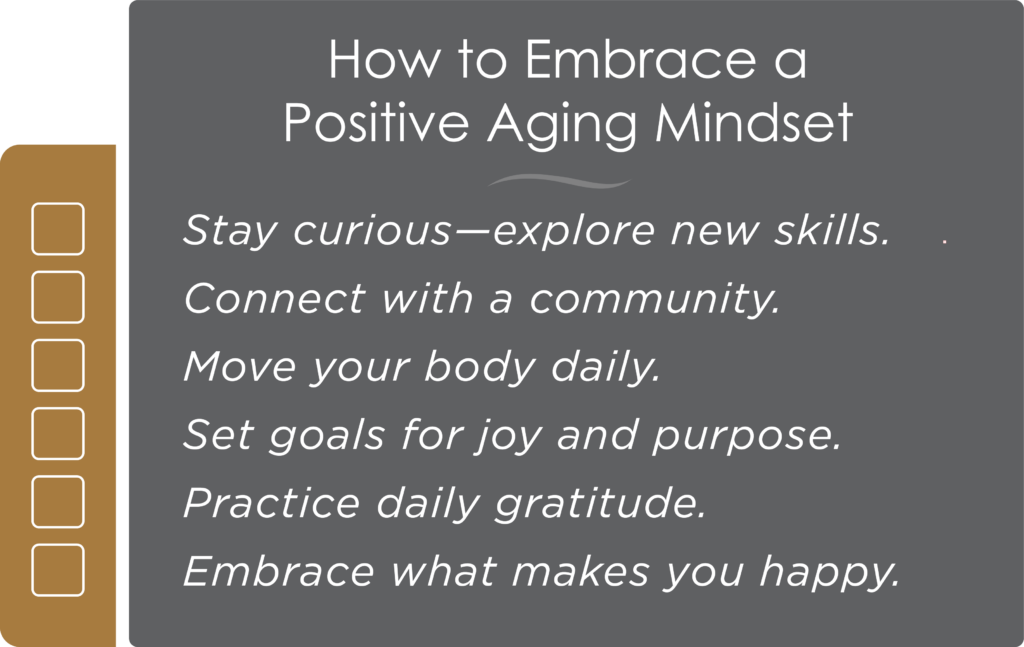
It’s fascinating journey of changes and challenges that we can navigate as we learn to create quality of life, build emotional well-being, keep our cognitive functions sharp and enjoy friends, fun and physical fitness until our very last moments.
Putting effort into improving our lives across all the spheres of whole-person wellness begins with a hopeful attitude, laced with reality and a dollop of humor for icing. Everything begins with believing that the best is yet to come.
How will you enter your last years? Let’s embrace the possibilities.
This is the first in a series which will explore the different aspects of Whole Person Wellness, and what you and I can do to enrich our lives as we age. Chances are you’ll discover a starting point for your best life in one of those spheres.
Find an easy place to begin. All it takes is the first step.
That first step is into the bright sunshine of the rest of your life. Let’s go.

